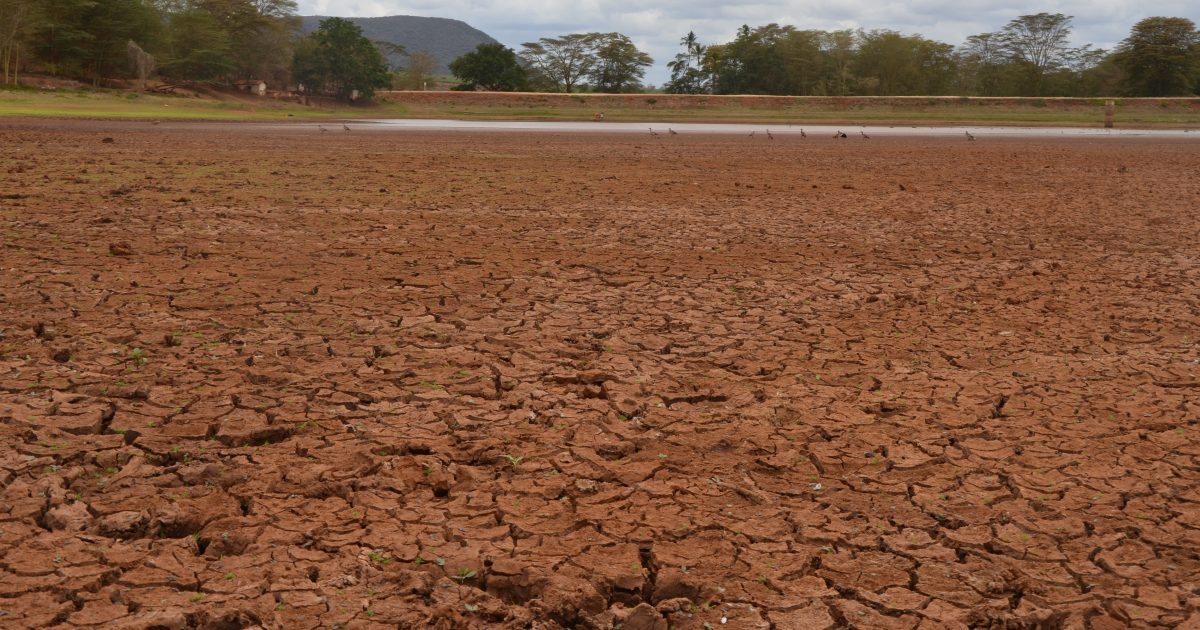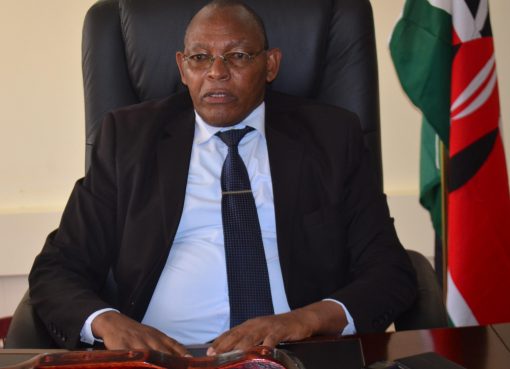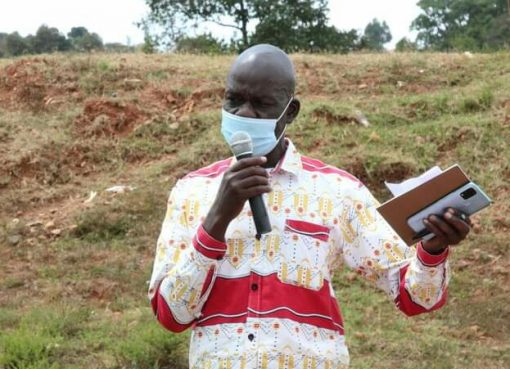The million-dollar question remains; is diplomacy a hindrance or an enabler of climate change mitigation measures in Africa?
Perhaps there is an urgent need to revisit the Kyoto Protocol and Paris Agreement. This comes against the backdrop of lingering questions on the relevance of the Conference of Parties (CoP 28) set for Dubai, United Arab Emirates (UAE) a major oil producer from November 30 to December 12, 2023.
Having joined the online discourse from Kisumu, the discussions first sounded like ‘French’ but on listening keenly, it dawned that it was difficult to rally the global community in cutting back on the use of fossil fuel without strong resistance by some partners.
This development occurred as a build up momentum as we move towards the African Climate Change week, the precursor to the African Climate Change Summit set for September, 2023 in Nairobi, Kenya.
Media Council of Kenya (MCK) Chief Executive Officer (CEO) David Omwoyo said they took the step to build capacity of local journalists on climate change issues as it was a topical matter that required in-depth understanding and analysis among the media.
Omwoyo and his Deputy Victor Bwire challenged journalists to interrogate funding for Climate Change and whether it trickles down to communities and with what impact on their economies.
“It has been 10 years since Kenya lifted the ban on consumption of Genetically Motivated Organisms (GMOs), lifted the ban on logging as well as tackling the Blue Economy and other related matters around it,” he explained.
He said the heat waves have driven up the global temperatures higher to 48 Degrees Celsius with North African countries being among those that have borne the greatest brunt.
It has impacted food security, floods, upwelling of Oceans and Lakes around the world which calls for lead strategic initiative with focus on the African narrative as opposed to the usual sensitization and mobilization by the media.
This goes against the Kyoto Protocol which was adopted on December 11, 1997 and after a complex ratification process, the document implementation kicked off on February 16, 2005 with 192 Parties to the Kyoto Protocol. It operationalizes the UN Framework Convention on Climate Change, committing industrialized countries and economies in transition to limit and reduce their Greenhouse Gases (GHG) emissions in accordance with agreed individual targets.
The Convention asks respective countries to adopt policies and measures on mitigation and to file periodical reports. On the other hand, the Paris Agreement is a legally binding international treaty on Climate Change that was adopted by 196 Parties at the UN Climate Change Conference (COP21) in Paris, France on December 12, 2015 and entered into force on November 4, 2016.
The Treaty’s overarching goal is to hold “the increase in the global average temperature to well below 2.0 Degrees Celsius above pre-industrial levels” and pursue efforts “to limit the temperature increase to 1.5 Degrees Celsius above pre-industrial levels.”
However, in recent years, world leaders have stressed the need to limit global warming to 1.5 Degrees Celsius by the end of this century. The justification is that the UN’s Intergovernmental Panel on Climate Change indicates that crossing the 1.5 Degrees Celsius threshold risks unleashing far more severe climate change impacts, including more frequent and severe droughts, heatwaves and rainfall.
In the same vein, the Paris Agreement provides a framework for financial, technical and capacity building support to those countries who need it. It also reaffirms that developed countries should take the lead in providing financial assistance to countries that are less endowed and more vulnerable, while for the first time also encouraging voluntary contributions by other parties.
The argument behind this is that climate finance is needed for mitigation considering that large scale investments are required to significantly reduce emissions. It also points out that climate finance is equally important for adaptation, as significant financial resources are needed for adaptation to the adverse effects and reduction on the impacts of a changing climate.
It also has the aspect of technology; which speaks to the vision of fully realizing technological development and transfer for both improving resilience to climate change and reducing GHG emissions by way of establishing a technological framework to facilitate this.
On capacity building, it points out that not all countries have sufficient capacities to deal with the numerous challenges attributed to climate change. As a result, the Paris Agreement lays great emphasis on climate-related capacity-building for developing countries. On the flipside, it urges developed countries to enhance support for capacity-building actions in developing countries.
However, Philbert Agango the Nairobi Trust Head of Programmes emphasizes the need to “hold respective governments to account for catalyzing climate change issues and addressing the glaring unequal relationship”, paraphrasing Prof. Mark Pelling (King’s College London).
Agango wondered aloud whether in Africa we should be talking of mitigation or adaptation. The former is the efforts to tackle climate change through reduction of Greenhouse Gases, while the latter refers to measures towards replanting of trees, restoration of biodiversity or resilient crops.
He wondered why countries are not talking to each other on such recent happenings like the upwelling on Lake Victoria that resulted in huge amounts of fish killed that saw the fisher-folk incur losses estimated to Sh1 billion over a period of one month.
It also resulted in the backflow that really affected such Islands like Migingo and Mfangano which some stakeholders attributed to a neighbouring country having released a huge amount of water into the shared water mass at a go.
Agango pointed out that governments tended to hide certain information considering that some of them are the lead polluters of the environment.
“This is why the 2021 United Nations COP26 held at Glasgow, Scotland, United Kingdom from October 31st to November 13th 2021 promised a lot but very little was delivered on actionable details.
This is why questions abound on the relevance of COP 28 set for Dubai with 753 formal decisions so far taken with a leading one emanating from Africa focusing on the “loss on damage” or reparation for the continent which is the least global pollution contributor.
“How should Africa (the global south) be made to make an impactful contribution?” he posed, pointing out that in Kenya for example, one cannot import a vehicle that has lived more than 8 years thus cutting down greatly on fossil fuel pollution.
A lead author, Heffa Shucking points out that Africa is already in the midst of a climate emergency. Its communities, ecosystems and economies are experiencing ever more intense heat waves, droughts, cyclones and catastrophic floods. Millions of people in the Horn of Africa are suffering famine and high water stress is expected to displace up to 700 million Africans by 2030.
Shucking argues that “while Africa only accounts for 3% of global greenhouse gas emissions, we suffer disproportionately from each additional degree of warming. Ours is the most climate vulnerable continent,” he declared.
He revealed that those fueling fossil fuel expansion in Africa included but were not limited to companies like Canada’s ReconAfrica, which is opening up an area of over 34, 000 Sq. Km for oil drilling in the fragile ecosystem of the Kavango Basin.
Others, he added, included France’s TotalEnergies, which is developing more new oil and gas resources on the continent than any other company. Research by Oil Change International shows that foreign multinational corporations own two-thirds of the projected new oil and gas production in Africa up to 2050.
He declared that fossil fuel industries have brought nothing but conflicts, ecological and economic destabilization to the continent.
The situation, he states, is the same in Nigeria, where six decades of fossil fuel extraction turned the Niger delta into one of the most polluted places on earth and destroyed the health and livelihoods of its communities.
Shucking argues that the current rush for Africa’s oil and gas has nothing to do with increasing energy access for its people but its profits will overwhelmingly flow to a global elite, while local communities are again left to deal with the pollution, impoverishment and human rights violations that are the hallmark of fossil fuel development.
Shockingly, he declared, Africa has 39% of the world’s total renewable energy potential, more than any other continent.
Shucking revealed that since the Paris Climate Agreement was signed, International Financial Institutions, both public and private, have sunk hundreds of billions of dollars into oil, gas and coal projects in Africa.
It’s in this light that Agango declared that Netherlands and Israel for example have made huge progress by reclaiming land from the sea. He questioned what African countries have done to this effect. He said effective Climate Change Reporting could bring about the necessary change and create the much needed impact in society.
However, he added, this could only be possible if there exists political goodwill which was lacking even in the African Union which relies heavily on foreign funding thus frustrating the fight against Climate Change and continued exploitation of natural resources in the African continent.
By Joseph Ouma





